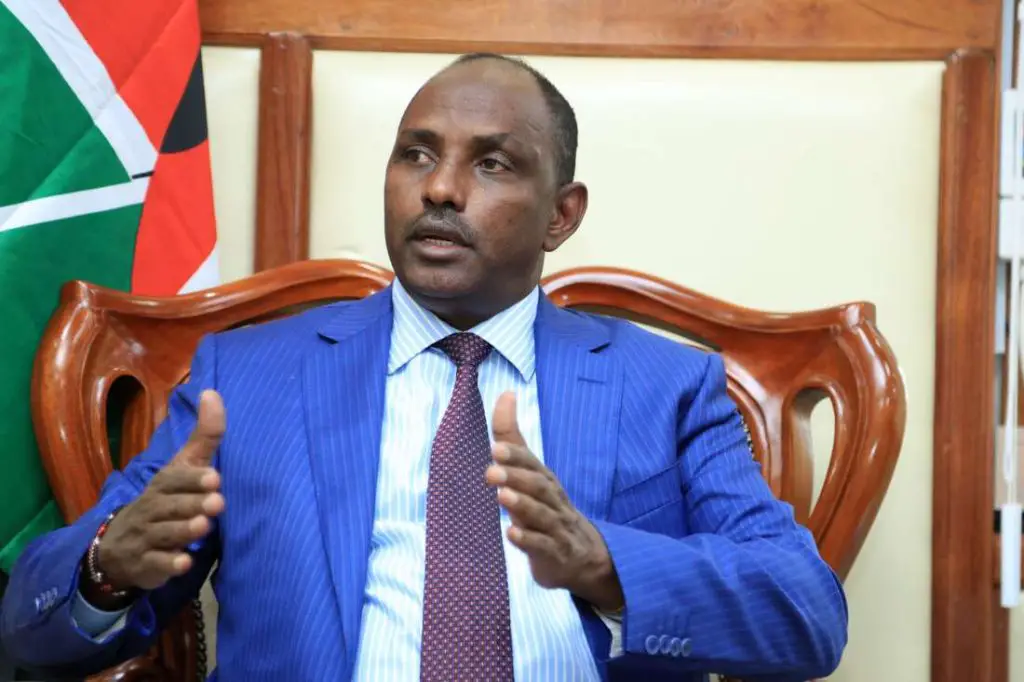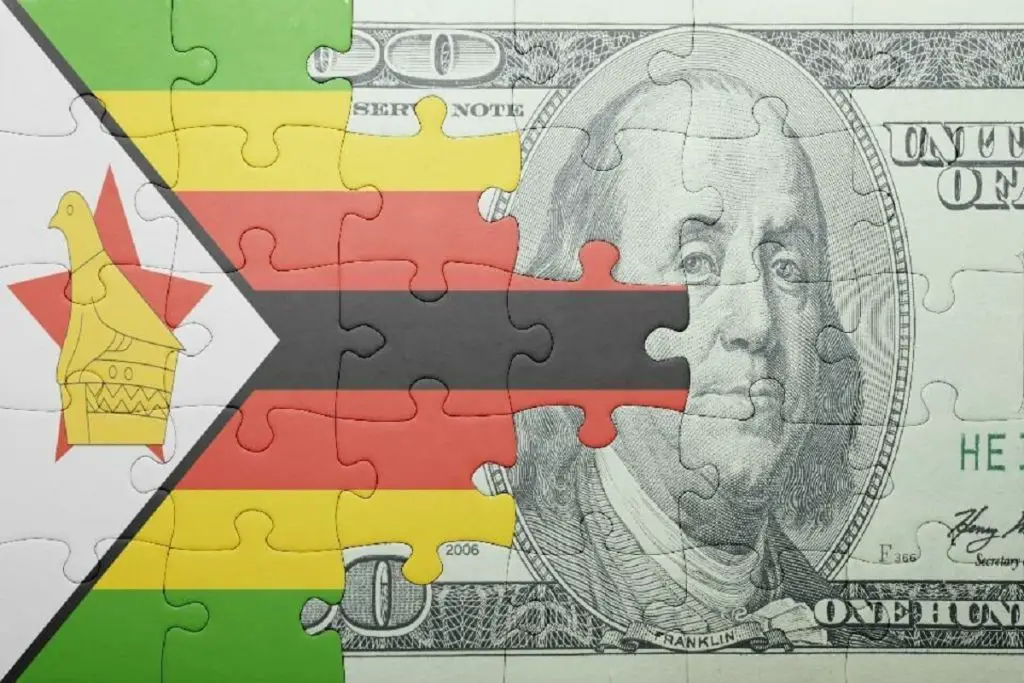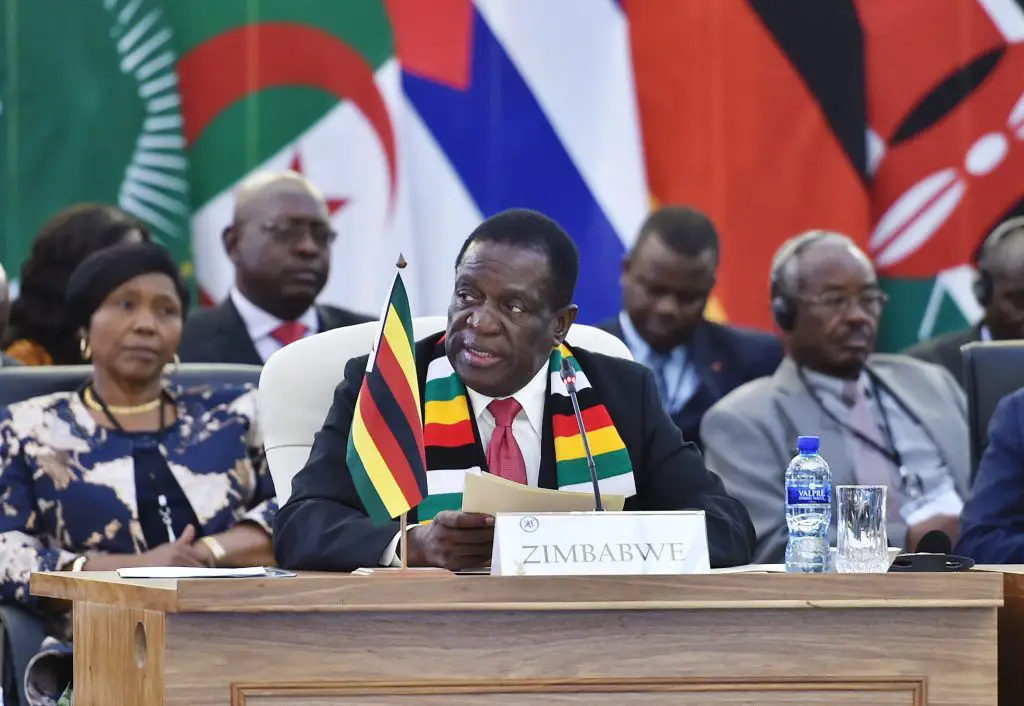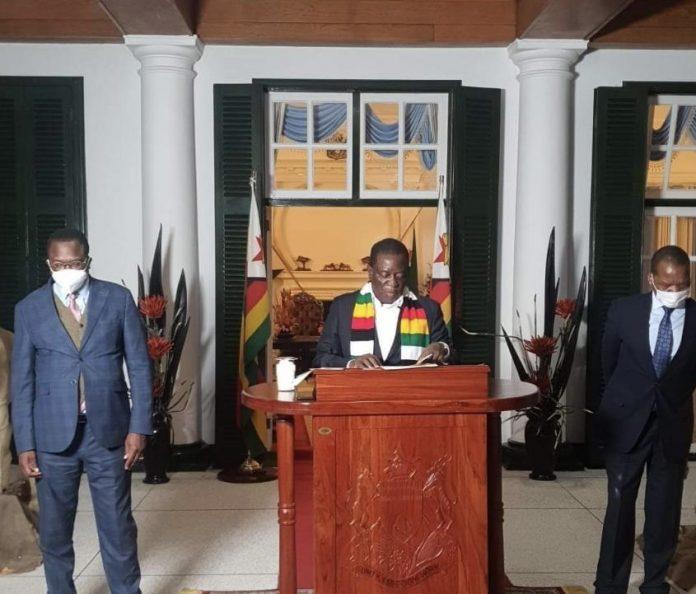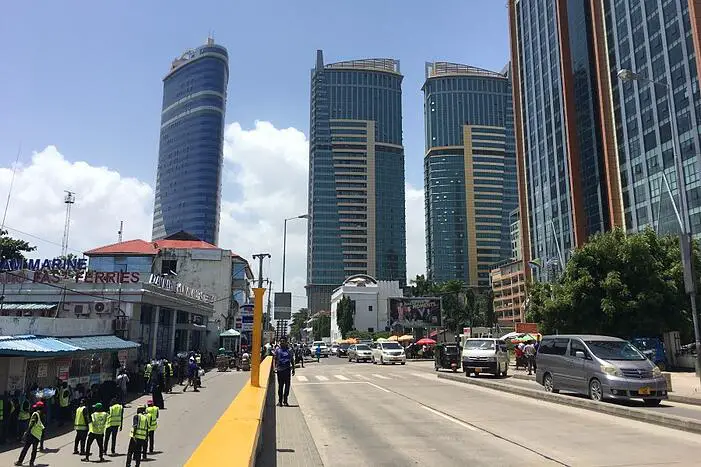- AI’s Dual Capacity and a Strategic Opportunity for African Peace and Security
- How African economies dealt with the 2025 debt maturity wall
- Africa’s Green Economy Summit 2026 readies pipeline of investment-ready green ventures
- East Africa banks on youth-led innovation to transform food systems sector
- The Washington Accords and Rwanda DRC Peace Deal
- Binance Junior, a crypto savings account targeting children and teens debuts in Africa
- African Union Agenda 2063 and the Conflicts Threatening “The Africa We Want”
- New HIV prevention drug is out — can ravaged African nations afford to miss it?
Browsing: economy
The shrinking economy and resulting unemployment have given birth to an informal economy that has spiralled out of control. Treasury and monetary authorities have been at pains to find ways they can tax the informal sector. The informal economy is difficult, if not impossible, to absorb into the formal economy or to include in the tax pool from which the government can draw revenue.
As the formal economy shrinks, so has Zimbabwe’s effective tax revenue stream, and this problem can only be arrested and mitigated by a growing economy.
An economy characterized by slow or negative growth makes it more difficult for the government to repair its finances. This is because there is a positive relationship between a country’s tax pool and the growth of the economy. A shrinking economy brings with it the added cost of having to provide social safety nets for the vulnerable members of its society.
If the government does not cater to these members of society during times when the economy shrinks, it will invariably experience heightened levels of poverty.
The Treasury has directed Cabinet Secretaries and CEOs of parastatals to draft the 2023 budget for the fiscal year beginning July 2023 based on policies implemented by President Uhuru Kenyatta’s government, despite uncertainty about when the next Head of State would take office after Raila Odinga filed a petition at the supreme court.
Zimbabwe’s economic and currency woes run much deeper than the finance minister can allude to. For starters, the country heavily relies on imports; it produces little in the form of manufactured goods for exports. This means that the country’s means of generating income in the form of foreign exchange consist largely of producing and selling raw goods with no value addition.
This phenomenon constrains the country’s ability to generate the foreign exchange it is in desperate need of to help underscore the value of its currency. This is perhaps the biggest stumbling block to the universal adoption and warm reception of the Zimbabwe dollar.
Zimbabwe’s citizens have had unpleasant experiences with the Zimbabwe dollar even before it collapsed in 2009. The country’s citizens have seen numerous bank failures with their savings and receiving no compensation for their losses. This was in 2004 when the banking crisis claimed the scalps of all but a handful of local/indigenous banks. In 2006 the central bank raided the foreign currency accounts of the largest exporters in the country. The foreign exchange, it is said, was used to finance the government and political expenditures.
Africa’s road infrastructure remains essential for landlocked countries, where opening manufacturing zones are needed. Reliable road transport is required for businesses to import and export goods, complete orders, and procure supplies.
This shortage of hard currency implies that those businesses that rely on foreign exchange have often had to source it from the parallel market, where it is easily available relative to the formal market.
To mitigate the inflationary pressures caused by businesses looking for foreign exchange on the parallel market and passing on the effect of higher exchange rates to consumers in the form of higher prices, the central bank instituted the foreign currency auction system, which allocates foreign exchange to importers.
This foreign exchange shortage affects all businesses across the economic spectrum and is not limited to retailers only. Manufacturing companies import raw materials and spares. They have recently experienced viability challenges from charging prices in local currency.
President Mnangagwa said his Government is convinced that the recent exchange rate movements were driven by negative sentiments by economic agents as opposed to economic fundamentals.
“These negative sentiments have been propagating adverse expectations on future inflation and exchange rate movements, thus giving rise to artificially high demand for foreign currency as economic agents hedge against expected high inflation,” he added.
The Government listed measures that are expected to restore macroeconomic stability, support the current robust economic recovery trajectory, boost economic confidence, increase the appeal of the local currency, preserve value for depositors and investors and deal with market indiscipline.
A report published by Lexology on January 18, 2022, Zimbabwe’s economy is largely driven by the mining, agriculture, and tourism sectors. However, because of Zimbabwe’s foreign currency shortages, there is a significant focus on export-oriented and foreign currency-generating activities.
This allows investors, businesses, and the government to retain value and meet the country’s forex needs. Zimbabwe’s main exports are minerals, agricultural produce, and soft commodities. She also has large reserves of chromite, coal, gold, and iron ore, among others. The country is also one of the world’s largest growers of tobacco.
According to research by Mordor Intelligence, Zimbabwe is a signatory of several bilateral and international agreements (MIGA, OPIC, ICSID, and UNCITRAL) that protect the investments of the companies in Zimbabwe. Zimbabwe has cheap educated, and competitive labour, well-developed infrastructure, and easy access to regional and global markets through its membership in AU, COMESA, SADC, COPAC, and CISSA. Zimbabwe offers free movement of investment capital and attractive investment incentives. Zimbabwe allows for 100% Foreign Direct Investment in almost all sectors barring a few.
According to the review, money supply to accommodative monetary policy measures and supportive fiscal policy during the first half of 2021/2022.
Tanzania is a nation whose economy is driven by the healthy participation of the private sector, the sector fair well amid slow times.
Credit to the private sector grew by 5.9 per cent compared with an average of 5.1 per cent from July to December 2020.
Energy, fuel, and utility inflation increased to 5.1 per cent in August 2021 from 3.6 per cent in July 2021…
Data by the bloc reveals that the sector provides livelihoods for about 80 per cent of the region’s workers, and accounts for about 65 per cent of foreign exchange earnings.
The continent, which COMESA Secretary General Chileshe Kapwepwe said last month has the potential to feed its self and export to the rest of the world, has remained a net food importer for the last 15 years.






